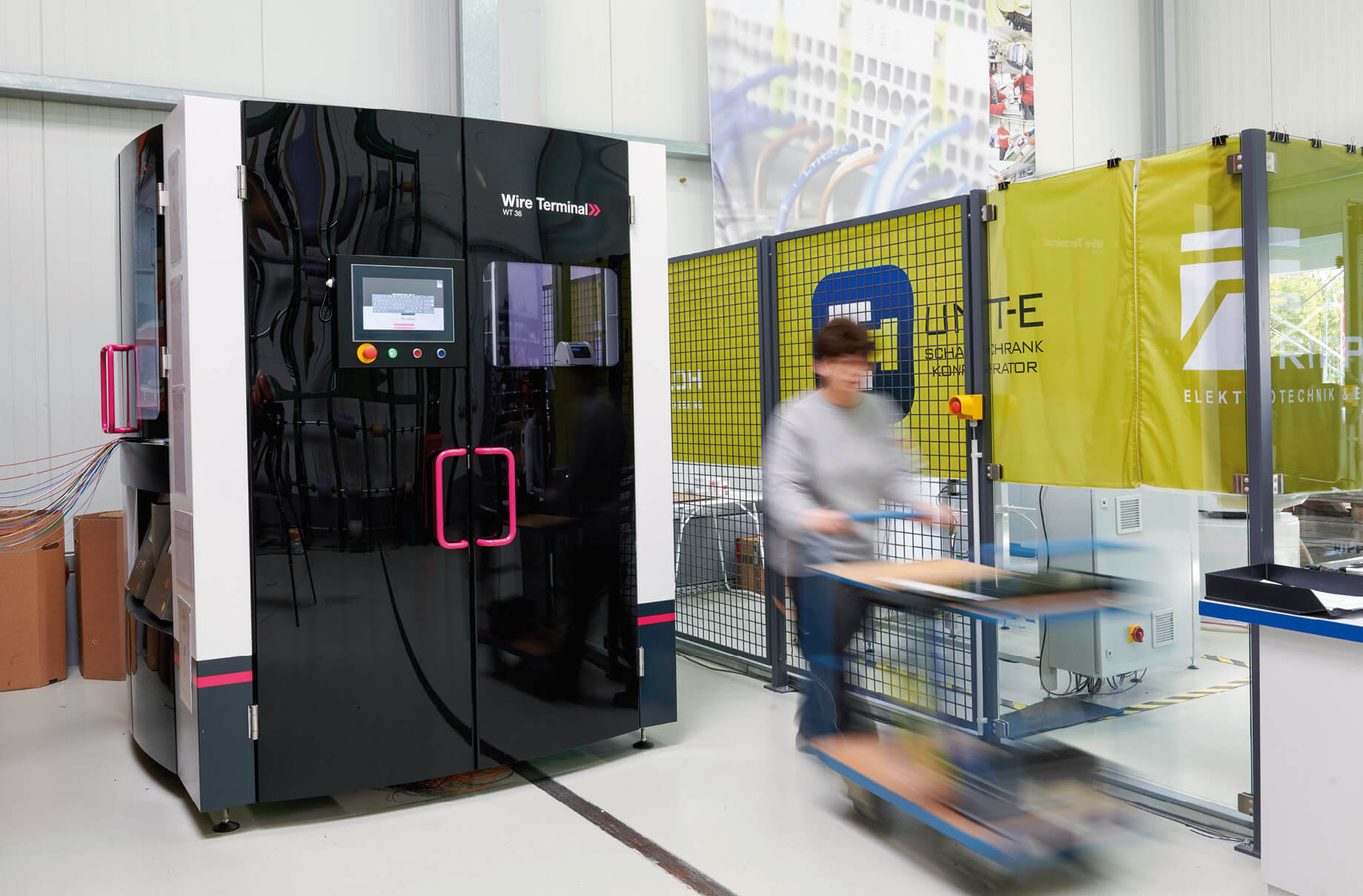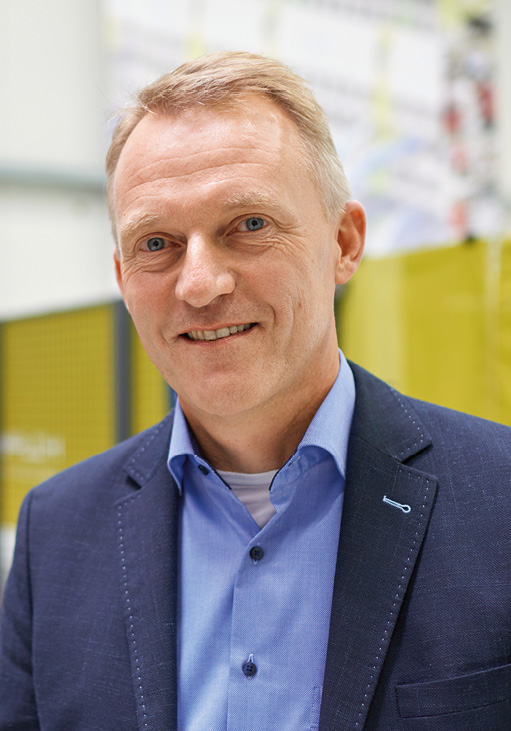Text Dr. Jörg Lantzsch und Hans-Robert Koch ––– Photography
Imagine you’ve just stepped into a large, well-kept workshop containing numerous enclosures and mounting plates that are waiting to be processed. A handful of staff members are focused on fitting-out and wiring work. Another thing that strikes you is the complete absence of paper – there are no folders stuffed with circuit diagrams and no job slips, either. Is this what the future of panel building and switchgear manufacturing looks like? At Ripploh Elektrotechnik, which is based in Ostbevern, Germany, this future is already a reality.
Since it was founded in 1995, the medium-sized company has evolved from a small contract manufacturer with four employees into an end-to-end supplier that doesn’t just build panels and switchgear, but also takes care of all the engineering work involved. “Nowadays, we have a long list of customers from industries such as the mechanical engineering sector who focus on engineering their machines and only tell us what type of installed components and IOs they want,” says Andreas Ripploh. “We then plan the entire control and switchgear installation from scratch and manufacture it at our own workshop.”
All processes at Ripploh are highly automated, starting with the early quotation phase. “To a certain extent, putting together a quote is a kind of ‘preliminary engineering’ process, and we have to invest some of our expertise in that step,” Ripploh explains.
That is why the company offers the UNIT‑E enclosure configurator for pre-determined and configurable assemblies. Customers can use this solution to get an immediate quote based on the information they provide. Downstream of the configurator is the Eplan Engineering Center, which initiates a detailed planning process after conducting a plausibility check. Within 24 hours, the customer receives a complete circuit diagram containing all relevant information.
“Our ERP system is closely linked to Eplan for the quotation process,” Ripploh explains, adding: “We maintain all component data in our ERP system’s database and enter it directly into the Eplan database.” Ensuring the data is of high quality and maintaining a data format with a uniform standard are a key challenge for the company – and there is still a great deal of work to be done. “Clean datasets are more important for panel building and switchgear manufacturing than many people think.”

